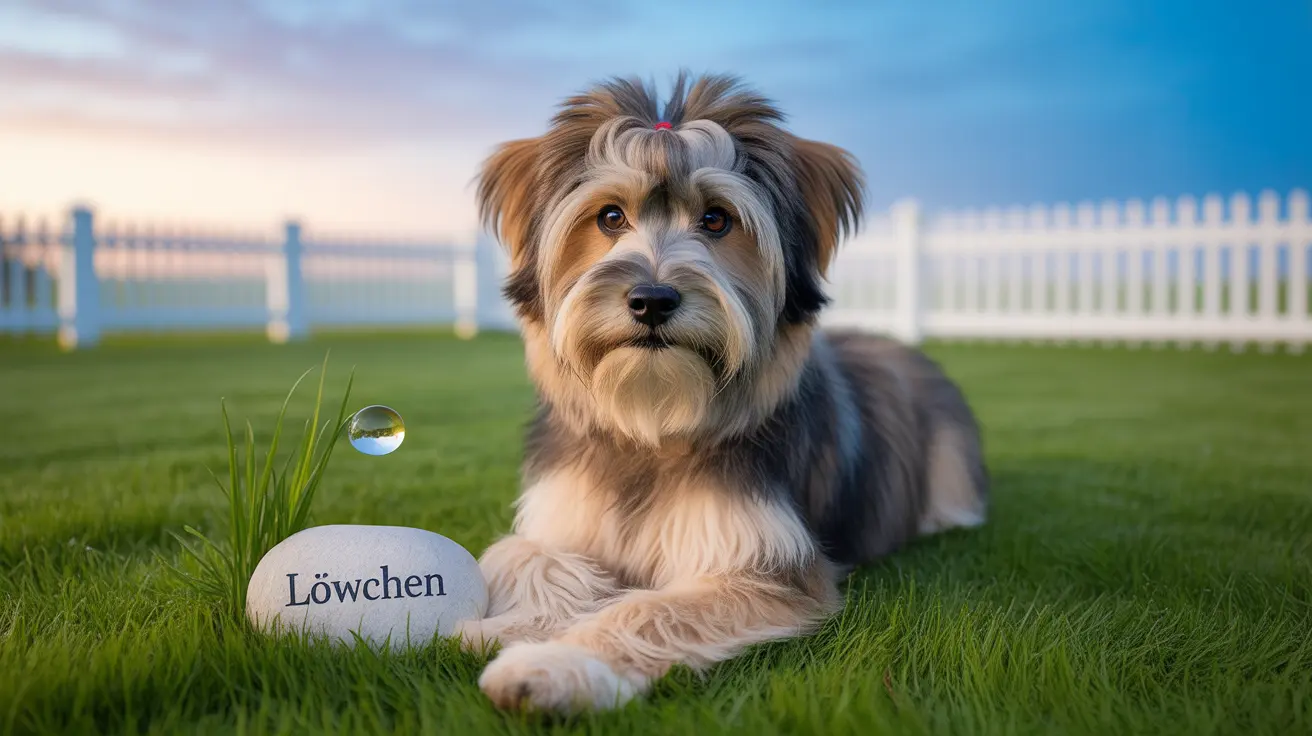Introduction
The Löwchen, an ancient toy breed with a rich European heritage, captivates dog lovers with its distinctive lion-like appearance and charming personality. This rare breed, whose name literally means 'little lion dog,' has graced the laps of nobility for centuries and continues to win hearts with its affectionate nature and unique characteristics. Despite its small size, the Löwchen carries itself with a dignified air that reflects its aristocratic history.
Historical Origins and Royal Legacy
Dating back to the 15th century, the Löwchen's presence in European art and noble households speaks to its distinguished heritage. Featured in works by renowned artists like Jan van Eyck and Albrecht Dürer, these small but mighty dogs were particularly favored by European aristocracy. Their famous lion cut, featuring shaved hindquarters and full mane, has remained consistent throughout centuries of breeding.
The breed faced near-extinction after World War II, with its survival credited to the dedicated efforts of Madame Bennert of Belgium. Through careful breeding programs, she and Dr. Hans Rickert managed to preserve this historic breed for future generations.
Physical Characteristics and Appearance
The Löwchen is a small, well-proportioned dog standing 12 to 14 inches at the shoulder and weighing between 9 to 18 pounds. Their most distinctive feature is their silky, long coat, which can be maintained in the traditional lion cut or left naturally long. The breed comes in various colors, including black, white, lemon, and combinations thereof.
Their expressive eyes and short muzzle contribute to an alert, intelligent expression that perfectly matches their clever personality. Despite their small stature, Löwchens possess a sturdy build that reflects their historical working capabilities.
Temperament and Personality Traits
Known for their outgoing and affectionate nature, Löwchens make exceptional family companions. These intelligent dogs combine playfulness with a gentle disposition, making them suitable for households of all sizes. They demonstrate remarkable adaptability, thriving equally well in apartments or larger homes, provided they receive adequate attention and exercise.
Their friendly temperament extends to both children and other pets, though early socialization is key to developing these positive traits. Despite their small size, Löwchens possess a brave spirit that lives up to their 'little lion' name.
Care and Maintenance
Regular grooming is essential for maintaining the Löwchen's coat, whether kept in the traditional lion cut or natural style. Their moderate exercise needs can be met through daily walks and interactive play sessions. Mental stimulation through training and enrichment activities helps prevent boredom and promotes good behavior.
Health-wise, Löwchens are generally robust dogs with relatively few breed-specific concerns. However, regular veterinary check-ups are important to monitor for potential issues like progressive retinal atrophy or patellar luxation.
Frequently Asked Questions
What is the typical lifespan of a Löwchen dog?
Löwchens typically live 13 to 15 years, with some individuals reaching even older ages when provided with proper care and nutrition.
How often should I groom a Löwchen to prevent matting and tangling?
Löwchens should be brushed 2-3 times per week to prevent matting, with professional grooming recommended every 6-8 weeks to maintain their coat in optimal condition.
Are Löwchens suitable for families with young children or other pets?
Yes, Löwchens are generally excellent with children and other pets when properly socialized. Their gentle and playful nature makes them ideal family companions.
What exercise needs do Löwchen dogs have, and how can I meet them?
Löwchens require moderate daily exercise, typically 30 minutes of walking plus playtime. They enjoy interactive games and can adapt their activity level to match their family's lifestyle.
How can I protect my Löwchen from common health issues like cataracts and progressive retinal atrophy?
Regular veterinary check-ups, genetic testing, and working with reputable breeders who screen for hereditary conditions are the best ways to protect your Löwchen from common health issues. Annual eye examinations are particularly important for early detection of vision problems.
Conclusion
The Löwchen represents a remarkable combination of historical significance and modern companionship. Their rarity, coupled with their adaptable nature and affectionate personality, makes them a truly special breed for those fortunate enough to share their lives with one. Whether kept as a family pet or show dog, the Löwchen continues to charm and delight, just as it has for centuries.






